DS Automobiles DS 7 vs Peugeot 308 - Differences and prices compared
Compare performance (130 HP vs 195 HP), boot space and price (41900 £ vs 29200 £ ) at a glance. Find out which car is the better choice for you – DS Automobiles DS 7 or Peugeot 308?
Costs and Efficiency:
Price and efficiency are key factors when choosing a car – and this is often where the real differences emerge.
Peugeot 308 has a decisively advantage in terms of price – it starts at 29200 £ , while the DS Automobiles DS 7 costs 41900 £ . That’s a price difference of around 12685 £.
Fuel consumption also shows a difference: Peugeot 308 manages with 2.30 L and is therefore decisively more efficient than the DS Automobiles DS 7 with 5.50 L. The difference is about 3.20 L per 100 km.
Engine and Performance:
Under the bonnet, it becomes clear which model is tuned for sportiness and which one takes the lead when you hit the accelerator.
When it comes to engine power, the Peugeot 308 has a evident edge – offering 195 HP compared to 130 HP. That’s roughly 65 HP more horsepower.
In acceleration from 0 to 100 km/h, the Peugeot 308 is clearly quicker – completing the sprint in 7.60 s, while the DS Automobiles DS 7 takes 11.90 s. That’s about 4.30 s faster.
Both models offer the same torque – 300 Nm.
Space and Everyday Use:
Whether family car or daily driver – which one offers more room, flexibility and comfort?
Both vehicles offer seating for 5 people.
In curb weight, Peugeot 308 is a bit lighter – 1453 kg compared to 1651 kg. The difference is around 198 kg.
In terms of boot space, the DS Automobiles DS 7 offers clearly perceptible more room – 555 L compared to 412 L. That’s a difference of about 143 L.
When it comes to payload, Peugeot 308 noticeable takes the win – 503 kg compared to 399 kg. That’s a difference of about 104 kg.
Who wins the race in the data check?
The Peugeot 308 is decisively ahead in the objective data comparison.
This result only shows which model scores more points on paper – not which of the two cars feels right for you.
Costs and Consumption
View detailed analysis
Engine and Performance
View detailed analysis
Dimensions and Body
View detailed analysis
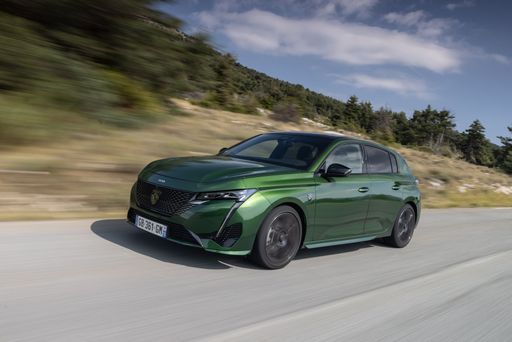
Peugeot 308
DS Automobiles DS 7
The DS 7 wraps Parisian elegance into SUV practicality, with sculpted surfaces, a jewel-like grille and an interior that feels more boutique lounge than family transporter. It appeals to buyers who want style and comfort without shouting, delivering a refined ride and clever tech that make daily driving feel a little more special — and yes, it’ll turn heads in the school run.
details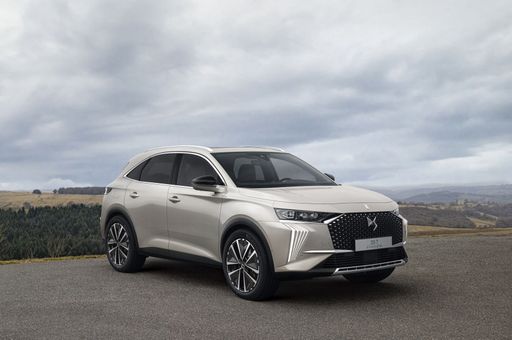
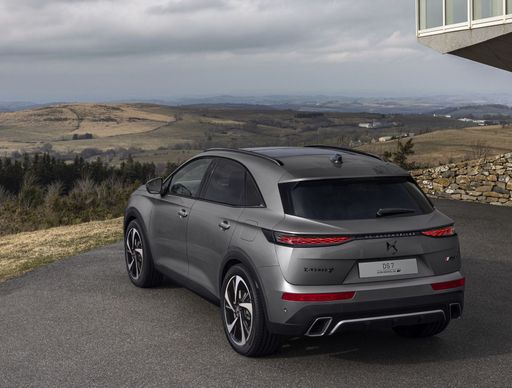
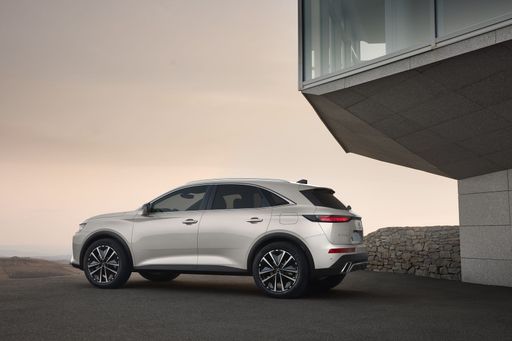
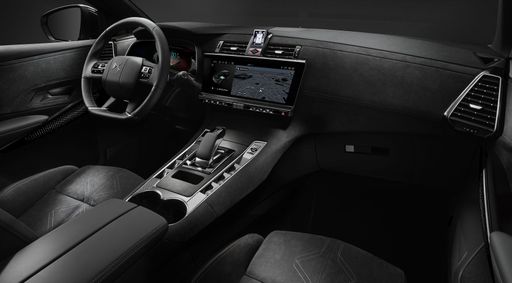
Peugeot 308
The Peugeot 308 brings a sleek, feline profile and an unexpectedly upscale cabin, with clever packaging and materials that feel a touch more premium than you might expect. It’s composed on the road, easy to live with for daily life, and a smart choice if you want a stylish hatch that still behaves when the road gets interesting.
details
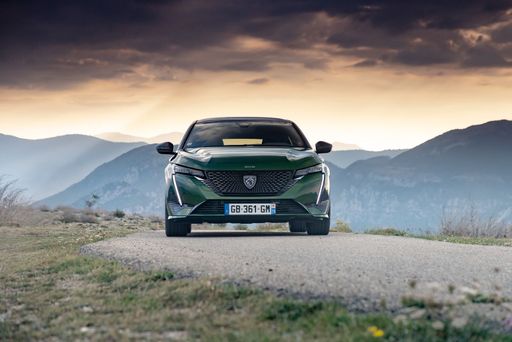
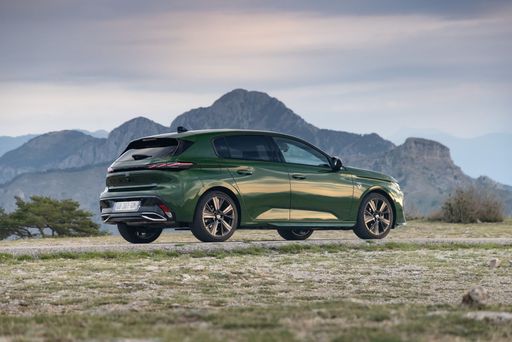
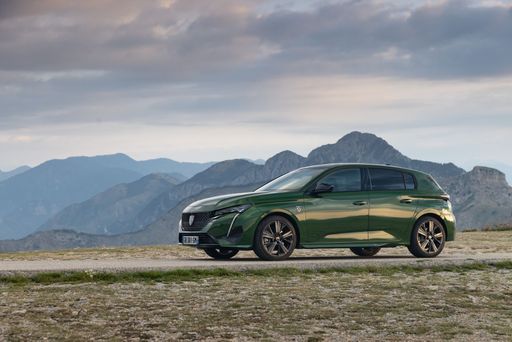
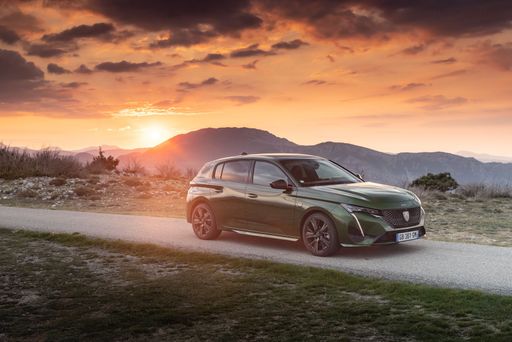
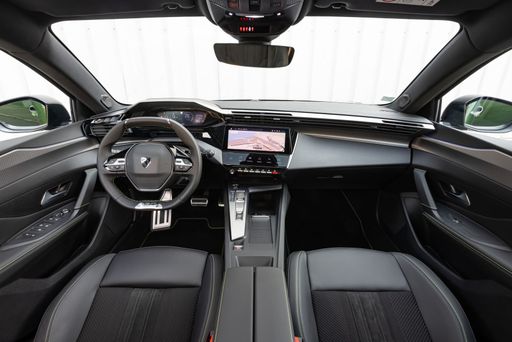
Costs and Consumption |
|
|---|---|
|
Price
41900 - 46100 £
|
Price
29200 - 42600 £
|
|
Consumption L/100km
5.50 L
|
Consumption L/100km
2.3 - 5.1 L
|
|
Consumption kWh/100km
-
|
Consumption kWh/100km
15.60 kWh
|
|
Electric Range
-
|
Electric Range
78 - 450 km
|
|
Battery Capacity
-
|
Battery Capacity
0.40 kWh
|
|
co2
145 g/km
|
co2
0 - 133 g/km
|
|
Fuel tank capacity
-
|
Fuel tank capacity
42 - 52 L
|
Dimensions and Body |
|
|---|---|
|
Body Type
SUV
|
Body Type
Hatchback
|
|
Seats
5
|
Seats
5
|
|
Doors
-
|
Doors
5
|
|
Curb weight
1651 kg
|
Curb weight
1453 - 1749 kg
|
|
Trunk capacity
555 L
|
Trunk capacity
314 - 412 L
|
|
Length
-
|
Length
4367 mm
|
|
Width
1891 mm
|
Width
1852 mm
|
|
Height
-
|
Height
1438 mm
|
|
Max trunk capacity
-
|
Max trunk capacity
1258 - 1323 L
|
|
Payload
399 kg
|
Payload
430 - 503 kg
|
Engine and Performance |
|
|---|---|
|
Engine Type
Diesel
|
Engine Type
Petrol MHEV, Diesel, Plugin Hybrid, Electric
|
|
Transmission
Automatic
|
Transmission
Automatic
|
|
Transmission Detail
Automatic Gearbox
|
Transmission Detail
Dual-Clutch Automatic, Automatic Gearbox, Reduction Gearbox
|
|
Drive Type
Front-Wheel Drive
|
Drive Type
Front-Wheel Drive
|
|
Power HP
130 HP
|
Power HP
131 - 195 HP
|
|
Acceleration 0-100km/h
11.90 s
|
Acceleration 0-100km/h
7.6 - 10.6 s
|
|
Max Speed
-
|
Max Speed
170 - 225 km/h
|
|
Torque
300 Nm
|
Torque
230 - 300 Nm
|
|
Number of Cylinders
4
|
Number of Cylinders
3 - 4
|
|
Power kW
96 kW
|
Power kW
96 - 144 kW
|
|
Engine capacity
1499 cm3
|
Engine capacity
1199 - 1598 cm3
|
General |
|
|---|---|
|
Model Year
2025
|
Model Year
2025 - 2026
|
|
CO2 Efficiency Class
E
|
CO2 Efficiency Class
C, D, B, A
|
|
Brand
DS Automobiles
|
Brand
Peugeot
|
What drive types are available for the DS Automobiles DS 7?
The DS Automobiles DS 7 is available as Front-Wheel Drive.
